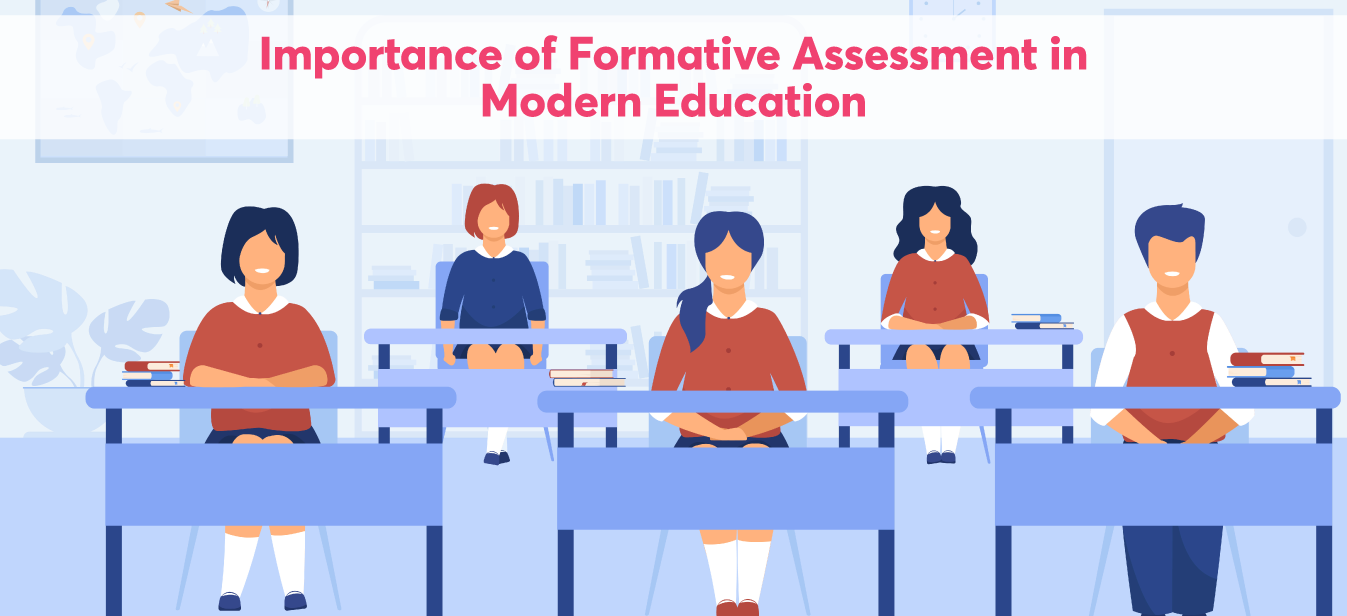In India, most teachers use traditional tests to assess students’ progress. These exams are given at the end of each unit or term to measure how well students have retained the knowledge they’ve gained. However, modern educational requirements demand assessment methods that foster student growth and improved teaching methodologies. This is where formative assessment plays an essential role in improving student learning outcomes.
Formative assessments are learning strategies to provide immediate feedback on student progress, and can help teachers determine exactly where each student stands. This helps teachers understand their students are up to speed before moving forward with new concepts or skills.
According to a Unicef report, using formative evaluations can help students understand their learning processes and identify areas in which they may need guidance. Since formative assessments are ongoing throughout the course, teachers can identify problems early on before they become too difficult for the student to overcome later on in the course or even during class. Teachers can offer more examples or practice opportunities when they notice a student is having trouble with a particular topic.
🖊️ Formative vs. Summative Assessment
Summative assessments are tests that are taken once after all of the learning has been completed. They measure how much information has been learned or retained by students. These types of assessments help determine whether or not a lesson was successful or if it needs to be revised. However, they cannot evaluate if there are still gaps in the learning process that need to be filled before moving forward with new material.
Formative assessment is a process that allows teachers to evaluate student learning and provide feedback to students before they move on to the next lesson. As a result, teachers can change their approach, modify their instruction or adjust materials based on what they learn from assessment results. Formative assessments are usually ongoing throughout the semester and are not designed to be used once at the end of a course like summative assessments.
🖊️ Formative assessment strategies include:
- Pre-assessments are assessments administered before instruction begins and are used to provide an overview of student learning so teachers can plan accordingly.
- Assessments during instruction allow teachers to gauge student understanding of concepts and ideas as they are presented.
- After the instruction has been completed, post-assessments allow teachers to determine if students learned what was expected of them.
🖊️ The Need of Formative Assessments
In addition to a negative impact on the academic year, the abrupt closure of schools due to Covid19 pandemic resulted in children missing out on core-teacher interaction, learning opportunities provided by classroom instruction, and peer interaction. Remote learning also had its own limitations in the Indian context. In order to restore learning after the pandemic, schools need to be able to identify gaps in students’ understanding and be able to provide them with the necessary support.
As a result, post-pandemic, formative assessment has become an increasingly important means to assess learning loss due to Covid19 school closures.
Formative assessments can be administered in many ways: by having students complete quizzes, answer multiple-choice questions or write short responses to open-ended questions. For example, think about a quiz that asks students to recall key points from a lecture or read silently while listening to an audio recording of the studied material. Here are some ways formative assessments foster student growth:
🖊️ Provide Guidance to Students
Formative assessments allow teachers to pinpoint where students are having trouble so that they can provide additional instruction in that area. In addition to identifying specific areas for improvement, formative assessments allow teachers to provide constructive feedback so students can see what they’re doing right and wrong. This helps them learn from their mistakes and become better at solving problems in the future.
🖊️ Promote Self-reflection
Students who receive formative assessments often have the opportunity to reflect on their work and ask themselves questions like “What did I do well?” or “What could I have done better?” This process can help them develop a deeper understanding of concepts.
🖊️ Help Students Practice Skills without Stress
Students don’t always perform as well when they feel under pressure, so formative assessments allow them to experiment with new strategies and get feedback before the stakes are too high such as during a quiz or test. This gives them a safe space where they can learn from their mistakes and try again until they succeed — which can boost confidence and improve test scores later on.
Square Panda India’s comprehensive programs utilize formative assessments to motivate and inspire students. This helps them realize their full potential while keeping them actively engaged and motivated to continue learning in a joyful manner. To know more visit, https://ecce.squarepanda.in/

